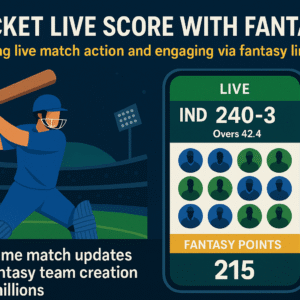Have you ever started playing a game “just for a few minutes” and then suddenly realized hours have passed? It’s almost like time disappears inside the world of gaming. That’s where the game play timer steps in—a tool, feature, or system that keeps track of how long you play and helps you make the most out of your gaming time.
Think of it as a friendly clock on your shoulder, whispering, “Hey, maybe it’s time for a break.” But it’s more than just a clock—it’s about balance, performance, and even strategy.
In this guide, we’ll explore what a game play timer is, why it matters, how to use it, and the many ways it can improve your gaming experience. Whether you’re a casual player or a competitive pro, there’s something here for you.
What Is a Game Play Timer?
A game play timer is a tool—built into a game, console, or external app—that records how long you spend playing.
It could be:
-
A clock on-screen while you play.
-
A daily or weekly usage tracker.
-
A countdown timer that alerts you when your set time is up.
Some games use it subtly (just showing total hours played), while others actively prompt you to take breaks after a certain period.
Why Game Play Timers Exist
Gaming companies didn’t just add timers for decoration. They serve several purposes:
-
Health awareness – Preventing eye strain, fatigue, and burnout.
-
Parental controls – Helping families limit daily screen time.
-
Self-discipline – Encouraging players to manage their play sessions.
-
Performance tracking – Letting you see how long certain tasks or missions take.
Much like a step counter motivates fitness goals, a game play timer motivates healthy gaming habits.
The Role of Game Play Timers in Modern Gaming
In today’s gaming landscape, timers are woven into the very fabric of many games and platforms.
Here’s how they show up:
-
In-game mission timers – Challenge you to complete tasks under pressure.
-
Daily time limits – Mobile games often restrict how long you can play to keep you returning daily.
-
Achievement tracking – Some games reward you for hitting certain time milestones.
-
Play session history – Console dashboards like PlayStation, Xbox, and Nintendo Switch show total hours per game.
Different Types of Game Play Timers
Not all timers are created equal. Here are the main types:
1. Countdown Timers
You set a specific limit—say, 1 hour—and the game alerts you when it’s up. Great for players trying to stay disciplined.
2. Count-up Timers
These simply track how long you’ve been playing without limits, ideal for speedrunners or performance tracking.
3. Real-Time Cooldowns
Many mobile and online games lock certain actions for a set period, encouraging players to return later.
4. Event Timers
Used in limited-time events, special missions, or tournaments.
Why Game Play Timers Are Important for Player Health
Gaming can be intense, immersive, and addictive. Without boundaries, it’s easy to overdo it. Timers can:
-
Prevent eye strain by reminding you to blink and take breaks.
-
Reduce sedentary strain by prompting you to stand and stretch.
-
Avoid mental fatigue, keeping your decision-making sharp.
Think of it like marathon training—you wouldn’t run for hours without rest. Gaming is a mental marathon, and timers are your water stations.
Timers for Competitive Players: A Secret Weapon
If you play competitively, a game play timer can become your hidden advantage:
-
Optimizing practice sessions – Track how long drills or training modes take.
-
Analysing matches – Spot patterns in match durations and adjust strategies.
-
Preventing burnout – Overtraining can harm performance; timers help pace you.
For esports athletes, managing mental and physical energy is as crucial as mechanical skill.
How Game Play Timers Help With Time Management
In a world full of distractions—work, school, social life—gaming timers help keep your hobby balanced with other responsibilities.
-
Setting goals – “I’ll play for 45 minutes before dinner.”
-
Avoiding late nights – Timers can alert you before it’s 2 AM without realizing it.
-
Maximizing enjoyment – Shorter, focused sessions often feel more rewarding.
Game Play Timers and Parental Controls
For parents, game play timers are one of the best tools to ensure kids play in moderation.
Features often include:
-
Daily limits – Automatically ending play after a set time.
-
Break reminders – Encouraging healthy habits.
-
Reports – Showing weekly or monthly gaming activity.
It’s like having a gentle, non-argumentative way to set boundaries—no more pulling the plug mid-game.
Timers as Game Mechanics
Sometimes, timers aren’t just for health—they’re a core part of gameplay itself:
-
Speedrunning challenges – How fast can you beat a level?
-
Survival modes – Last as long as possible before time runs out.
-
Timed puzzles – Complete tasks under pressure for rewards.
Here, the timer isn’t a limitation—it’s part of the fun.
Popular Games and Platforms That Use Timers
Some notable examples include:
-
Animal Crossing: New Horizons – Real-time clock synced with your console.
-
Fortnite – Limited-time events and challenges.
-
World of Warcraft – Raid lockouts and daily quest timers.
-
Nintendo Switch – Parental control app with playtime tracking.
-
PlayStation & Xbox dashboards – Total hours played statistics.
Tips for Using Game Play Timers Effectively
If you want to get the most from a game play timer:
-
Set realistic limits – Don’t go from 5 hours to 30 minutes overnight.
-
Use timers for breaks – Even 5 minutes every hour can make a difference.
-
Track your patterns – See when you tend to overplay and adjust.
-
Make it part of your strategy – Use time awareness to improve performance.
The Future of Game Play Timers
Expect timers to get smarter with AI integration:
-
Personalized reminders based on your health and play patterns.
-
Syncing with wearables to monitor stress, posture, or eye strain.
-
Adaptive limits that adjust based on your schedule.
Timers will become less about restriction and more about enhancement—helping you play better, not just less.
Conclusion
The game play timer is more than a ticking clock—it’s a guide, a coach, and sometimes even a teammate.
Whether you want to improve your skills, protect your health, or simply make sure you don’t miss dinner, timers give you the awareness you need to enjoy gaming without letting it take over.
In the end, it’s not about playing less—it’s about playing smarter.








